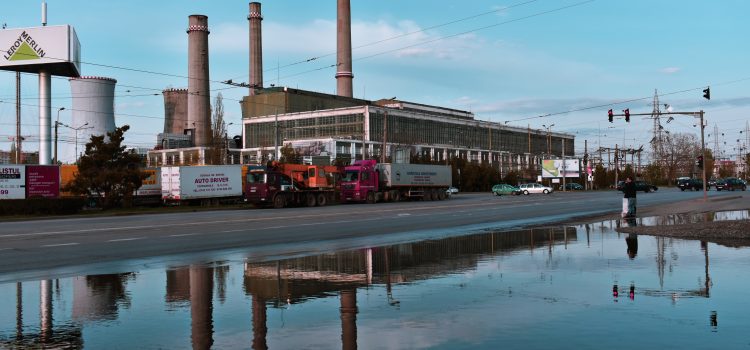
Introduction
As one of the world’s largest producers and exporters of energy, Russia commands a significant role in shaping global energy markets. From oil to natural gas, this Eastern European powerhouse has long been a major player in the international energy landscape. But what factors have contributed to Russia’s incredible success in the sector? And with changing geopolitical dynamics and shifting consumer preferences, what does the future hold for Russia’s lucrative energy industry? In this blog post, we’ll take a closer look at the forces driving Russia’s energy revenues and explore what lies ahead for this critical sector.
Russia’s Oil and Gas Reserves
Russia is one of the world’s leading oil and gas producers, accounting for around 12% of global production in each respectively. The country also has the largest reserves of these fossil fuels, with an estimated 80% of its oil reserves and 60% of its gas reserves yet to be extracted. Consequently, Russia’s energy sector is a major contributor to the country’s economy, with oil and gas revenues accounting for around 30% of government budget revenues.
However, Russia’s reliance on energy exports makes it vulnerable to fluctuations in global energy prices. This was demonstrated in 2014 when a sharp fall in oil prices led to a significant decrease in Russian government revenue and a weakening of the ruble. Despite this vulnerability, Russia has continued to invest heavily in its energy sector in recent years in order to maintain its production levels. In 2018, the country plans to invest $19 billion in exploration and development projects, with a particular focus on increasing extraction from its Arctic offshore fields.
Looking ahead, it is likely that Russia will continue to be a key player in the global energy market. However, the country will need to carefully manage its reliance on fossil fuel exports in order to protect itself from future price shocks.
Russia’s Dependence on Energy Revenues
Russia is one of the world’s leading energy producers, and its economy is highly dependent on revenues from energy exports. In recent years, Russia’s energy sector has been a major driver of economic growth, accounting for around 20% of GDP and more than 60% of government revenues. However, this reliance on energy exports has made Russia’s economy vulnerable to fluctuating global energy prices.
In 2014, Russia was hit hard by a sharp decline in global oil prices. This caused the Russian government to lose billions of dollars in revenue and forced it to make spending cuts in other areas. The country’s economy shrank by 3.7% in 2015, and its currency, the ruble, lost nearly half its value against the US dollar.
Fortunately for Russia, oil prices have risen sharply in recent months, giving the country a much-needed boost. However, it is unclear how long this will last, and some experts believe that Russia’s economy could be in for another tough year ahead.
The Impact of Sanctions on Russia’s Energy Sector
The Western sanctions imposed on Russia in response to its actions in Crimea and Ukraine have had a significant impact on the country’s energy sector. The most immediate effect has been on the financing of Russian oil and gas projects, as many international banks have become reluctant to lend to Russian companies. This has led to a slowdown in investment and production, as well as a reduction in government revenues.
In the longer term, the sanctions are likely to have a more profound impact on Russia’s energy sector. They will make it more difficult for the country to develop its vast oil and gas resources, and could lead to an increase in energy prices for Russian consumers. This would be a major blow to an already struggling economy, and would put further strain on the Putin government’s popularity.
The Outlook for Russia’s Energy Sector
The Russian energy sector is in a state of flux. Low oil prices and Western sanctions have taken their toll, and the sector is now facing an uncertain future. Nevertheless, there are some factors that could work in Russia’s favor in the coming years.
For one, Russia has the largest reserves of natural gas in the world, and demand for this fuel is only expected to grow in the years ahead. This gives Russia a considerable advantage over other energy-producing countries. Additionally, Russia has been working to diversify its energy exports, and this will help to insulate it from fluctuations in global oil markets.
Finally, it is worth noting that Russia’s energy sector is not entirely dependent on oil and gas revenues. The country also has sizable reserves of coal and uranium, which could be exploited if necessary. In short, although the outlook for Russia’s energy sector is far from rosy, there are still some reasons for optimism.
Conclusion
Russia’s energy sector continues to be a major source of revenue for the country, and its importance is likely to remain in the coming years. We have explored some of the key factors driving this revenue base including geopolitical dynamics, production trends and technological advancements. The Russian economy has proved resilient in maintaining its energy revenues despite setbacks along the way and stands poised to benefit from greater access to global markets as well as increased domestic investments. As such, we can expect that Russia will continue to derive significant benefits from its energy resources in both the short-term and long-term future.










